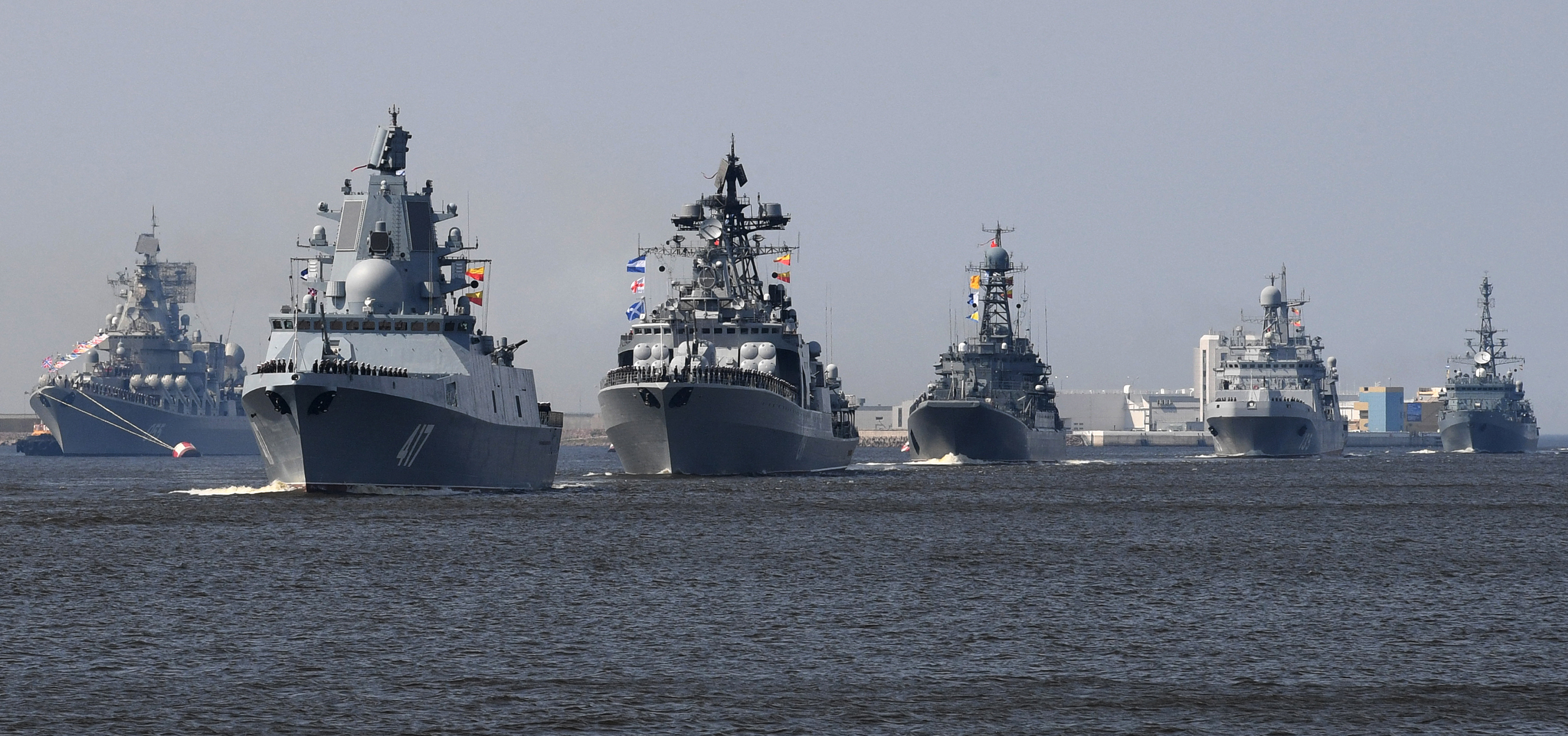Bowing to pressure, the SA National Defence Force (SANDF) has postponed a joint naval exercise with Russia and China that was due to coincide with the G20 Summit in SA in November.
The SANDF announced on Thursday, 4 September that it was postponing the exercise — Mosi III — which was scheduled to be held in the Western Cape, “to ensure that the exercises do not impact on the logistical, security and other arrangements associated with South Africa’s G20 Presidency”.
However, this was clearly a face-saving measure, as the SANDF had defended the exercise and the timing until the last moment, before it suddenly backed down on Thursday.
In the US and other Western countries, the earlier announcement that SA would again hold joint military exercises with Russia and China — and particularly in the full glare of the international publicity around the G20 Summit — had prompted disbelief.
US sources, in particular, said Mosi III would further aggravate the already fraught efforts of SA to restore relations with Washington to normality and to try to reverse the punishing 30% trade tariffs President Donald Trump slapped on SA.
In its statement, the SANDF hinted that it had bowed to pressure from President Cyril Ramaphosa and International Relations and Cooperation Minister Ronald Lamola to postpone the military drill.
The statement said, “In consultation with the Presidency and the Department of International Relations and Cooperation, the Department of Defence is engaging its counterparts in the People’s Republic of China on a postponement of the exercise to a mutually suitable date.” China was scheduled to lead the exercise, although it was going to take place in South African waters.
The SANDF statement also incorrectly labelled Mosi III as a “joint BRICS military exercise”. Although Russia and China are both members of BRICS, Mosi III is not an official BRICS exercise as the BRICS cooperative engagements do not have a defence component.
The other original BRICS members, India and Brazil, did not participate in the first two iterations of the exercise. The previous one — Mosi II — also sparked huge controversy as it occurred in February 2023, precisely on the first anniversary of Russia’s invasion of Ukraine.
Just a few days ago, SANDF spokesperson Rear Admiral Prince Tshabalala had told News24, “The planning for exercise Mosi III is currently in progress for execution towards the end of November 2025. The exercise will continue as planned. The authority is exercised by the Department of Defence [DoD].”
DA welcomes postponement
DA defence spokesperson Chris Hattingh said: “The Democratic Alliance welcomes the postponement of Operation Mosi III.
“Hosting the G20 Summit in November should be at the core of the state’s focus; thus, undertaking military drills with nations at such a pivotal moment for the country points to a profound failure of strategic foresight on behalf of the DoD.
“Our national interest must rest upon protecting and advancing South African National imperatives. Ultimately, to jeopardise crucial trade and diplomatic relations with trade partners by undertaking such military activity is far beyond non-alignment, but also showcases a deep-seated state of misalignment on the side of the DoD leadership.
“The DoD makes reference to Mosi III as being a ‘joint BRICS exercise’, further showcasing the department’s ineptitude, as BRICS is a purely economic and political bloc.
Baffling
Darren Olivier, a director at African Defence Review, said: “While I welcome the postponement of the exercise, it’s baffling that South Africa’s Department of Defence thought the timing was appropriate in the first place.
“Not only is it a politically inept move, given the country’s diplomatic manoeuvring around the G20 Summit, but it introduces significant operational security risks to have ships and personnel committed to an exercise rather than security during such a critical and high-profile event.
“I also cannot understand why, even in its statement announcing the intended postponement, the DoD refers to Exercise Mosi III as a ‘joint BRICS military exercise’. It’s nothing of the sort, as BRICS is not a military alliance and has no institutions, committees, agreements or organising bodies for military cooperation or the organising of military exercises. This is unlike, for instance, SADC, which has explicit military cooperation agreements and organising committees for military exercises and operations.
“No other country in BRICS refers to these types of exercises as ‘joint BRICS military exercises’, and, to my knowledge, when South Africa has hosted its semi-regular naval exercises with India and Brazil in Exercise Ibsamar, it has not referred to that as a BRICS exercise, despite both being founding members.
“It seems that even after the DoD has received the internal governmental equivalent of a slap on the wrist for wrongly engaging in its own rogue diplomacy, its leadership and spokespeople can’t help themselves from stepping outside their lane and into contentious foreign policy issues once again.”
He was referring to last month’s visit to Iran by the SANDF chief, General Rudzani Maphwanya, during which he made strongly political statements in meetings with his Iranian military counterparts. Both the Presidency and Dirco publicly reprimanded him for trespassing into their foreign policy domain. DM




 Russian navy ships, among them the frigate Admiral Gorshkov, which participated in Exercise Mosi II. (Photo: Olga Maltseva / AFP)
Russian navy ships, among them the frigate Admiral Gorshkov, which participated in Exercise Mosi II. (Photo: Olga Maltseva / AFP)